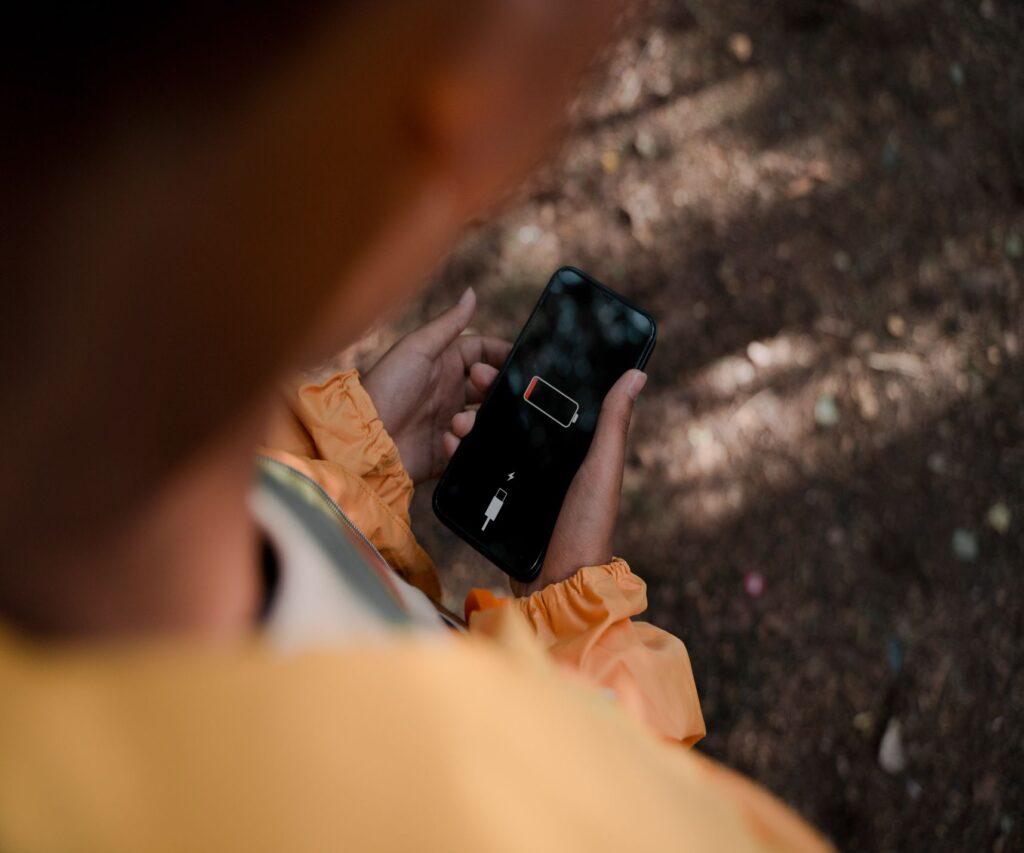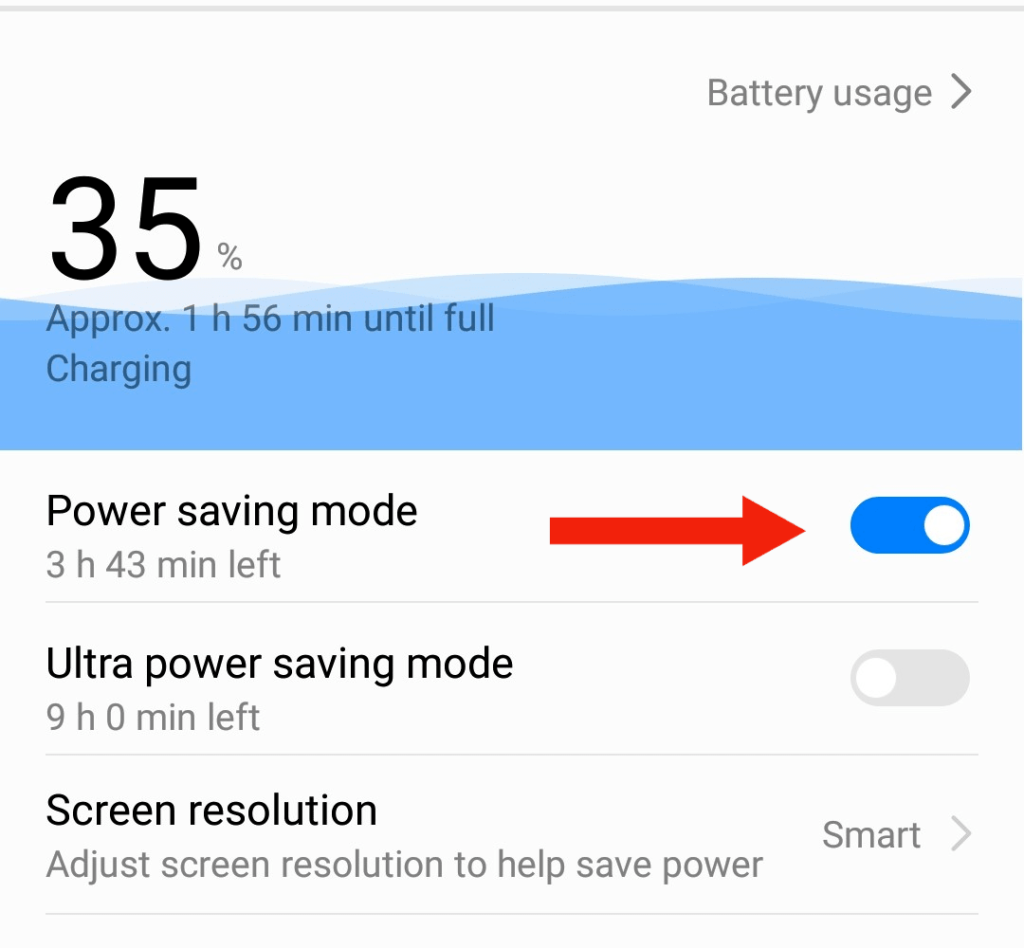You might be concerned that fast charging will drain your battery faster or it will drain the battery a bit faster compared to if you were using a slower charger. This is a common concern, but it is also a misconception.
So, does fast charging also drain the battery faster?
Well, the reality is that fast charging doesn’t drain your battery any faster than if you were using a slower charger. Quick charging just supplies the charging mechanism for the battery with more power,
This means the fast charger will put more power into the battery in a shorter period, and it also doesn’t change the way power discharges from the battery. Fast charging will not drain your battery any faster than regular charging would.
If you think your phone is draining quickly, there might be other reasons for it. In this article, we will explore this topic and see how fast charging works, whether it can kill your phone battery, and some ways to prolong battery life.

What is fast charging?
Fast charging is becoming increasingly common in recent flagship phones. “Full charge in under an hour” or “fully charged in half an hour” are a few of the claims made by phone manufacturers when advertising their newest devices.
Since phone sizes keep increasing each year, they require larger batteries to compensate for the increased power consumption, which means we’d have to wait hours if we didn’t have fast charging.
At the most basic level, fast charging is simply increasing the number of watts (W) that are delivered to a phone’s battery.
A typical USB connection delivers 2.5W to the connected device, and faster chargers raise this amount. Some companies offer 50W, 80W, and 100W charging options.
How does it work?
The simple answer will be that the charger will supply more energy to the phone in a short amount of time, which will result in the phone getting charged faster. But let’s understand it on a bit deeper level.
The charging process can be divided into three parts. Take a look at this article by Battery University for more technical details. Briefly, here’s what it shows:
- In the first phase, the voltage increases towards its peak, while the current stays constant at a high level. This is when a lot of electricity is transferred to the device quickly.
- Second-phase, When the voltage has reached its peak and the current drops down.
- In the last phase, The battery is fully charged. The power will either slowly enter, or will periodically charge a low “topping” amount as the phone consumes battery.
This is how fast charging works, and as you can see, it doesn’t have any effect on the battery itself. The only thing that fast charging does is supply more power to the battery in a shorter period of time.
Misconceptions about fast charging.
Fast charging=fast draining
This statement is far from the truth. As already explained above, fast charging will just result in the phone getting to 100% sooner compared to normal charging or using a charger that doesn’t supply high power.
Is fast-charging dangerous?
You might have noticed that when you are charging your phone it might get a bit warm, which is pretty normal. The same thing happens when you are using a fast charger.
But since more power is being delivered to the phone in a shorter amount of time.
The phone will get hotter than it would if it was being charged at a slower rate. As you know, heat is pretty bad for the battery. It can damage the battery. So, it means fast charging is bad. right?
Well, the answer is no. This is due to how fast charging works.
As explained above The first phase is where they take in as much power as possible. The first phase is usually when the battery is empty or low.
The charging rates are reduced when the battery capacity rises to a certain level to avoid stress and heat that can harm the battery’s longevity.
You’ve probably noticed your phone charges faster to a certain percentage but longer to fill the battery; this is the reason for it.
Also, your phone may automatically turn off fast charging if your device’s temperature exceeds a certain level. The bottom line is that fast charging has little impact on your battery life.
Ways to prolong battery life
Now let’s talk about some ways which can help you to improve your battery life.
1-Keep the screen brightness low
A smartphone’s screen is the component that typically uses the most battery. The easiest way to prolong the battery is to turn done screen brightness. It will save a lot of energy. Using Auto-Brightness probably is a good option.
2- Use power-saving mode
This mode usually limits performance and background data usage. It also dims the screen and reduces vibration. This can help prolong the battery life. You can turn it on from the battery setting of your phone.

3- Avoid using live wallpapers
Using a live wallpaper or widget will consume more battery because they are constantly updating. If you want to save battery then it’s better to use a static image as your wallpaper.
4- Use dark mode everywhere possible.
The dark mode is already quite pleasant to the eyes but it also has some battery-saving benefits. Less power is consumed when in dark mode compared to the bright bright background.
Conclusion
I hope you found this helpful. The myth of fast-charging draining your battery faster is just that, a myth. Fast charging is not equal to fast draining.
With that being said, You can follow the tips above to improve your battery life and prolong it.
